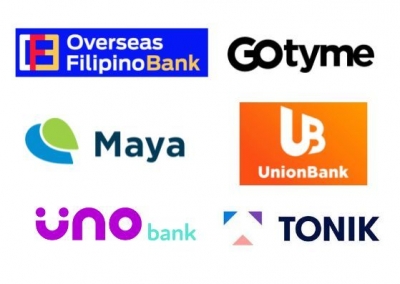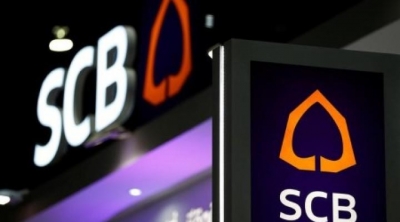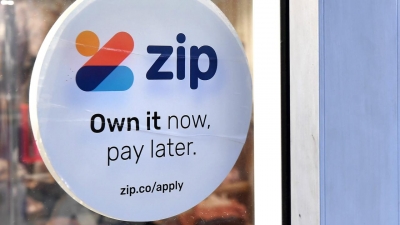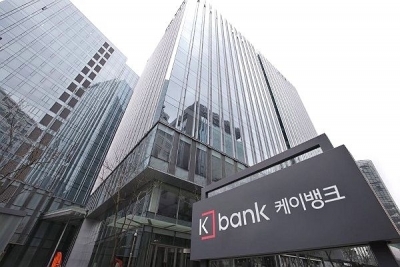Can the Philippines exit the FATF grey list soon?
No country likes to end up on the Financial Action Task Force’s (FATF) grey list. It means that FATF has determined a country’s anti-money laundering (AML) and/or counterterrorism financing (CFT) controls are somewhat deficient. It could be worse – they have a black list too – but that is reserved for the likes of North Korea. The Philippines has been on the FATF grey list since June 2021 and is hoping to exit by January 2023. But it will not be an easy task given persistent concerns about the country’s Bank Secrecy Law, inadequate regulation of the casino gaming sector and seeming reluctance to use the law to fight financial crime more aggressively.
We cannot think of a single Asian market where the arrival of digital banks has upended the competitive landscape. That’s not to say that digital lenders cannot put pressure on incumbents, especially to up their digital game and do something about that clunky legacy IT infrastructure. It is just that getting people to switch banks is much harder than doing the same for say, ride-hailing or food-delivery apps. With the arrival of digital banks in Malaysia, most incumbent lenders will feel some pressure, and consolidation may be in some of their interests, but the big players are unlikely to lose significant market share.
Can SGX attract more big-ticket listings?
The Singapore Exchange has long been quiet compared to other prominent bourses in Asia, from Hong Kong to Shanghai, Tokyo to Mumbai. We might call it a sleeper – provided that it has adequate potential to awake. In 2021, fundraising on SGX fell 50% to $565 million, a six-year low, with just eight listings, according to Refintiv.
Taking stock of SoftBank’s Asia fintech investments
SoftBank has not been weathering the downturn in tech stocks and general rising investor skepticism towards growth-first startups especially well. In the second quarter, the company lost a record US$23 billion, prompting CEO Masayoshi Son to engage in some candid self-reflection. He described himself as becoming “somewhat delirious” during the apex of SoftBank’s startup funding binge when the investments were paying off big and says he is now “embarrassed and remorseful.” Nevertheless, some of SoftBank’s Asia fintech investments – which include several big players in the region – could still pay off in the long run.
It has been a long time since we heard anything from Dana, the Indonesian Ant Group-backed e-wallet. In the past few years as many big Asian tech firms have invested in incumbent Indonesian banks, intending to refashion them as digital lenders, standalone e-wallets, lacking banking licenses, have been at a disadvantage. Yet Dana may be able to carve out a niche within the ecosystem of Alibaba and the local conglomerate Sinar Mas following the purchase by Lazada of US$304.5 million worth of its shares from existing shareholder Emtek Group and its receipt of a fresh US$250 million investment from Sinar Mas.
Digital lenders shake up the Philippine banking market
Despite being recent arrivals to the Philippine financial services market and not having – at least for the most part – a large deposit base yet, the country’s digital banks are shaking up the market, prompting major fintechs without banking licenses and traditional lenders alike to step up their game. The Philippine central bank recently greenlighted one more digital bank, GoTyme, to start its operations while both UNObank Inc. and Aboitiz-led UnionDigital Bank Inc. started commercial operations last month.
Are credit cards ascendant in India?
For the past few years, the biggest credit story in India has been buy now, pay later (BNPL). Tremendous demand for credit has driven the BNPL boom in the subcontinent, but tighter regulation and slower growth are both now inevitable. After all, you cannot act as a credit provider without being regulated like one forever. As BNPL slows down in India, there may be an opportunity for the overlooked – but better regulated and steadily growing – credit card segment to build market share.
Stripe is gradually growing its APAC footprint
Can you think of any Western fintech firms that are dominant in Asia Pacific? Somewhat dominant? Neither can we. That may be because the region has no shortage of homegrown fintech options, especially in the ultra-competitive payments segment. That is not deterring Stripe though. As one of the most valuable startups in history, the U.S. payments giant thinks big, and sees significant market opportunities across the APAC region, including through strategic partnerships.
Why are Chinese firms listing shares in Switzerland?
We have heard a lot about Chinese companies potentially delisting en masse from the U.S.’s capital markets. Without an eleventh-hour deal between the US and China, that may be inevitable. The paramount long-term trend, however, is where they will go in the first place to raise capital internationally. Hong Kong is the most obvious choice, but there are also options in Europe thanks to the establishment of stock connect programs. To that end, with the launch of the China-Switzerland Stock Connect four Chinese companies have listed on the Six Swiss Exchange.
Assessing CBDC progress in Southeast Asia
When Cambodia swiftly launched its retail central bank digital currency (CBDC) Project Bakong, it seemed that other Southeast Asian countries might also make similar moves. Yet in the nearly two years since Bakong went live in October 2020, not a single nation in the region has launched a CBDC of its own. Even the pilot programs are proceeding slowly. It seems that the hype around digital fiat currencies is subsiding and governments are worrying less about whether their nations will be left behind in the next generation of finance and more about if a CBDC offers clear benefits that justify its costs.
Paytm is in good spirits despite rising losses
Paytm is in high spirits. Its stock has risen 45% over the past three months, making it an outlier among fintechs. Paytm is even feeling pretty good about losing 6.44 billion rupees (US$81 million) in the first quarter of FY2023, an increase of 70% from a loss of 3.8 billion rupees a year earlier. Paytm attributed the higher loss to increased operating costs and said it is on track to reach operating profitability by the second quarter of the fiscal year.
Is Thailand souring on crypto?
Crypto believers will point to Thailand recently greenlighting four new digital assets companies to say that the kingdom remains a booster of decentralized virtual currencies. These include Krungthai XSpring, a crypto broker affiliated with one of the country’s leading banks, crypto exchange T-BOX Thailand, crypto adviser and fund manager Coindee and Leif Capital Asset Management, which also manages funds. We reckon Thailand is not going to crack down on crypto as China and India have, but the digital assets’ freewheeling days in the kingdom are quickly winding down. Tighter regulation is inevitable given retail investors’ recent losses in the digital assets market.
Revolut is not slowing down in APAC
As fintech startups stare down the barrel of a dot-com-like crash, it is becoming clearer by the day that only the strong will survive. And the strong in this industry, where ironically (given this is financial services) being profitable has not been paramount, tend to have loads of cash to spend. The UK’s Revolut is one of those fintechs who really seems too big to fail, and that is why despite tough macroeconomic conditions the company is pushing full speed ahead into different Asia-Pacific markets including Singapore, Australia and India.
Ride-hailing companies can be profitable, as Uber is proving, and so can fintechs, but can ride-hailing companies become profitable fintechs? Untangling that word salad is something of a heavy lift, much like turning an app-based taxi service into a bank. But there is a clever shortcut that deep-pocketed tech giants like Indonesia’s GoTo can take to bolster their fintech prowess. They can invest in a struggling incumbent bank and make it profitable.
Digital transformation at SCB hits a snag
Digital transformation at incumbent banks is all well and good, but maybe making a huge bet on crypto as a traditional lender is still a bit risky. At least that is the sense we get from Thailand’s Siam Commercial Bank (SCB) and its digitally forward holding company SCB X. While many aspects of SCB’s pivot to fintech are proceeding smoothly, the planned acquisition of the crypto exchange Bitkub is not. The deal was supposed to be concluded by now, but it appears SCB is having second thoughts about it.
Why is Alibaba planning a primary listing in Hong Kong?
U.S.-China financial decoupling has been happening in slow motion and sometimes appears to be leveling off, allowing some observers to stay optimistic. In reality, however, it will not be easy for American and Chinese regulators to agree on a deal that allows Chinese firms to remain listed on U.S. stock exchanges. With that in mind, Alibaba recently announced it will pursue a primary listing in Hong Kong.
Australia’s Zip is putting out fires
Looking at the recent earnings statement of Australia’s Zip, we have to give the company credit for being able to put a positive spin on a troubled story. As a buy now, pay later (BNPL) firm that overextended itself, Zip now faces double trouble: a problematic business model and resources that are stretched too thin. But the fourth fiscal quarter earnings statement (April to June) highlights Zip’s revenue rising 27% year-on-year to AU$160.1 million and a 20% increase in transaction volume. Losses, however, represented 2.7% of the value of transactions.
Baby steps for Japan’s CBDC
Surprise, surprise: Japan is in no hurry to issue a digital yen. In a June report that declared proof of concept in the first-phase study, the Bank of Japan (BOJ) repeated its stance that it has “no plans to issue” a CBDC, though the Japanese central bank believes it is “important to be prepared thoroughly to respond appropriately to any future changes in the environment.” Talk about a general statement. The BOJ’s stance has to be viewed within the wider context of CBDC development in Asia, especially the underwhelming performance – at least in relation to the hype surrounding it – of China’s digital renminbi.
Can Toss Bank learn from Kakao’s mistakes?
South Korea’s Toss Bank is experiencing exponential growth amid strong demand for digital financial services and weak digital offerings from incumbent lenders. From the time of its launch in October 2021 through the end of June, online bank had opened 3.6 million accounts. Toss has added 2.5 million accounts this year, a pace of growth that more than doubles its first three months of operation, when it signed up 1.1 million customers. Further, Toss’s loan books have reached 4 trillion won.
2022 is turning out to be the worst crypto bear market yet. Bitcoin’s price is hovering around US$20,000 while most traders of the paramount cryptocurrency traders are underwater and continuing to sell at a loss. The dismal crypto market conditions – and how they highlight decentralized digital currencies’ inherent volatility – are forcing regulators in many Asian countries to consider tightening relevant regulations. However, there are exceptions, and the Philippines is a notable one. Cryptocurrencies remain very popular in the country; trading is still brisk and regulators have yet to signal a tougher stance.
India’s fintech unicorn club has a new member, the credit provider OneCard. In mid-July, OneCard announced it had raised US$100 million in fresh funding at a valuation of US$1.4 billion, nearly double its January valuation of US$750 million. Leading the round was Singapore’s Temasek. Other key participating investors existing backers QED, Sequoia Capital India and Hummingbird Ventures. To date, OneCard has raised US$225 million and says it has over 250,000 customers spending about US$60 million with its cards each month.
The government crackdown on China’s tech sector has had many far-reaching effects, among the most consequential the reorientation of the country’s capital markets ecosystem away from consumer-facing platform companies and towards a state-guided deal pipeline focused on strategic industries. E-commerce, fintech, ride hailing and home sharing are out, while advanced manufacturing, artificial intelligence, 5G telecommunications and renewable energy are in. Big-ticket mainland IPOs are becoming more common, especially with the advent of the Shanghai STAR board, China’s answer to the Nasdaq.
How is Rakuten Bank’s IPO shaping up?
Japan’s Rakuten first announced plans for an initial public offering of its online banking unit in September 2021 amid fierce competition with Amazon and as it faced steep costs from building a mobile network. 10 months later, the Japanese platform company said that it had applied to list its online banking unit on the Tokyo Stock Exchange. It has not yet, however, given any specific guidance as to when the IPO will occur.
Singapore has been viewed as the most likely crypto hub in Asia after China’s crackdown on decentralized virtual currencies effectively ended Hong Kong’s prospects for taking on such a role. The city-state has never been that gung-ho about the idea though. Its regulators recognize crypto offers certain opportunities to Singapore, but they also are aware of its inherent volatility. The current crypto bear market and related collapses that are occurring are likely to spur Singapore to take an even more cautious approach to decentralized digital currencies.
India’s UPI is starting to think globally
India’s UPI real-time payments platform has achieved impressive growth since its inception just over six years ago, with expansion being especially turbo-charged during the long coronavirus pandemic. The acceleration of India’s overall digital economy over the past 2.5 years has helped UPI become the most dominant platform of its kind on the subcontinent and even begin nascent international expansion: to the UAE, Bhutan, Singapore, Nepal and now France. The question now is if UPI can build meaningful market share outside of its home country, where it enjoys some inherent advantages.
K bank’s crypto dependency is a double-edged sword
South Korea’s K bank, the country’s first online lender, has staged an impressive comeback in the past two years, overcoming long-running capitalization problems and growing both its deposit base and loan books at a brisk rate. K bank's loans have grown 1.56 trillion won (US$1.28 billion) per year on average since its launch in 2017 while customers’ average annual savings have reached 2.31 trillion won. A tie-up with leading South Korean crypto exchange Upbit has been a key reason for K bank’s recent fast growth. However, that reliance on Upbit could now become a liability for the digibank.
Assessing Ant Group’s key investments in Asia
Once upon a time, before China’s tech crackdown began in earnest, Ant Group went on an overseas shopping spree, investing in a wide variety of up-and-coming fintechs. Though the company never stated the idea clearly, many observers assumed Ant was laying the groundwork for some kind of cross-border payments ecosystem in Asia – where it made the bulk of its investments. Things have not turned out that way (at least not yet), but some of Ant’s individual investments are proving to be winners, giving the company a strategic presence in some of the region’s most promising markets for digital financial services. Other investments, however, have not proven so successful.
Fintech is resilient in Indonesia
Despite a slowdown in fintech funding amid a shaky global economy, Indonesian fintech remains a bright spot in the Asia-Pacific region. While the deal flow has tapered off somewhat from late 2021 and the first quarter of 2022, the second quarter still saw a few big-ticket deals.
Perennially sanctioned North Korea has become adept at stealing cryptocurrency to finance its illicit weapon programs. Unlike fiat currency, decentralized digital assets exist outside of the formal financial system, making them easier prey for Pyongyang’s tenacious and skilled hackers. Yet the recent crypto bear market that has seen US$2 trillion in market valuation lost may complicate North Korea’s crypto-funded criminal endeavors.
What went wrong at Volt?
The demise of yet another Australian neobank brings to mind Queen’s hit 1980 song, “Another One Bites the Dust.” With the abrupt collapse of Volt, which said in late June it would cease operations and return AU$100 million in customer deposits after failing to raise AU$200 million, the Australian neobanking experiment’s last chance for success is Judo, which listed on ASX last year and has reached profitability. Otherwise, now both Xinja and Volt have collapsed, while 86 400 was acquired by National Australia Bank (NAB) in early 2021.
More...
What goes up, must come down, especially in fintech. We know that buy now, pay later (BNPL) firms have grown organically at a torrid pace in India due to low credit card penetration and strong demand for credit products, and we also know they could not have grown so fast if they had been properly regulated. At the same time, there is a certain systemic financial risk that comes with the possibility of bad consumer debt accruing fast, a likely scenario when BNPL is allowed free rein. With that in mind, the Reserve Bank of India’s (RBI) recent decision to ban nonbanks from loading prepaid instruments (PPI) — digital wallets, or stored-value cards — using credit lines does not come as a big surprise.
Hong Kong faces rising financial crime
Hong Kong is battling a surge in financial crime committed both online and by telephone. The uptick in fraudulent activity coincided with the city’s worst Covid-19 surge, which occurred in the first quarter of this year. At the time, Hongkongers were largely confined to their apartments; the economy was in its worst state of the pandemic, shrinking by 4%, and the government imposed especially harsh measures to slow the spread of the hyper-infectious omicron variant. These conditions led to higher unemployment and greater desperation in the population, making some people easy prey for fraudsters.
What happens to airlines that fail to win digital banking licenses? In the case of Capital A, they have to count on a sharp rebound in travel demand to help revive their core business, which could eventually be better bundled with the AirAsia super app and various fintech services. However, Capital A continues to lose money as seen in its mixed first quarter results.
China has been cracking down on fintech in one form or another since September 2017 when it set out to clip the wings of its then flourishing cryptocurrency industry. Next up on the chopping block was peer-to-peer (P2P) lending. Both industries are shells of their former selves, which suits Beijing just fine given their risk profiles. However, the crackdown on China’s systemically important tech companies has had ripple effects in the broader economy and China’s leadership recently signaled that a change of direction may be near.






























